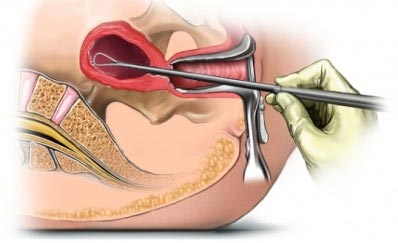Miscarriage means an unhappy ending to a happy event. The causes of miscarriage are varied and by knowing the causes of miscarriage one can prevent future miscarriages. The chances of miscarriage are high in some cases as in advanced age pregnancy, hormonal factors and so on. Read on some of the common causes of miscarriages.It is almost paradoxical that almost 60% of the
miscarriages happening in the first trimester do not have any real cause. Doctors therefore assume that there must be some genetic reasons behind them where the chromosomes did not reproduce in the expected manner. The common perception is to associate the miscarriage with any recent illness, which is again faulty. Given below are some of the common causes that lead to miscarriage:
Hormonal Factor
There is a probability for miscarriage within 10 weeks of conception if the miscarriage is caused by hormonal factors. The low progesterone levels are usually found to be the root cause and the situation is compounded by the fact that the progesterone suppositories may not actually help in saving the pregnancy. The pregnancy already becomes nonviable and these drugs actually delay the termination.
The drugs can help only when the defect is in the luteal phase, that is, when the corpus luteum that develops around the egg during ovulation fails to produce the hormones required to sustain the pregnancy. It needs to be noted here, low progesterone levels means that the pregnancy is nonviable and NOT the cause.
When there is a problem with the thyroid glands and the hormones are either above or below the expected levels, miscarriage occurs. The problem arises when the thyroid condition goes untreated, whereas, the situation can easily be treated and controlled if diagnosed on time.
Chromosome Factor
The first cell forms with the incision of the egg and sperm. The egg and sperm can have the perfect chromosomes but after a couple of cell divisions, there can occur some abnormality; the reasons for which are largely ambiguous. The newly fertilised egg can even die causing a miscarriage and according to statistics over 60% of the miscarriages that occur within a few weeks of conception is caused by this factor.
Structural Problems Concerning the Uterus or Cervix
Some women can have an unusual uterine shape; in some the cervix might not strong enough owing to several factors like due to the usage of certain medications. These can lead to early labours and the chances of miscarriage escalate by 12% during the 12 to 24 weeks of pregnancy. The problem arises when the fetus begins to develop rapidly and it cannot accommodate itself inside the irregularly shaped uterus. It is also caused when the uterus stops expansion, and/or the weak cervix suddenly bursts thereby letting the baby out. With a timely corrective surgery and a cervical stitch these complications can be effectively treated.
Immunity Factors
Doctors are yet not unanimous about the cause and treatment of immunity disorders. Many reproductive endocrinologists claim that the pregnancy of 80% women, who have already experienced miscarriage due to this factor, can be saved once the point is taken care of. Here are a few antibodies that need to be administered to avoid miscarriages:
- Antiphospholipid Antibodies – They prevent blood clot in placenta which can lead to miscarriage.
- Antinuclear Antibodies - They help in controlling the auto-immune disease where the body begins to attack itself.
- Fetal Blocking Antibodies – It protects the baby from the mother’s immune system, where the antibodies from the egg turn hostile to the father’s sperm taking it to be a foreign body.
There can be a host of other causes leading to miscarriage like advanced age, infections, common illnesses that are left untreated and even accidents.
































